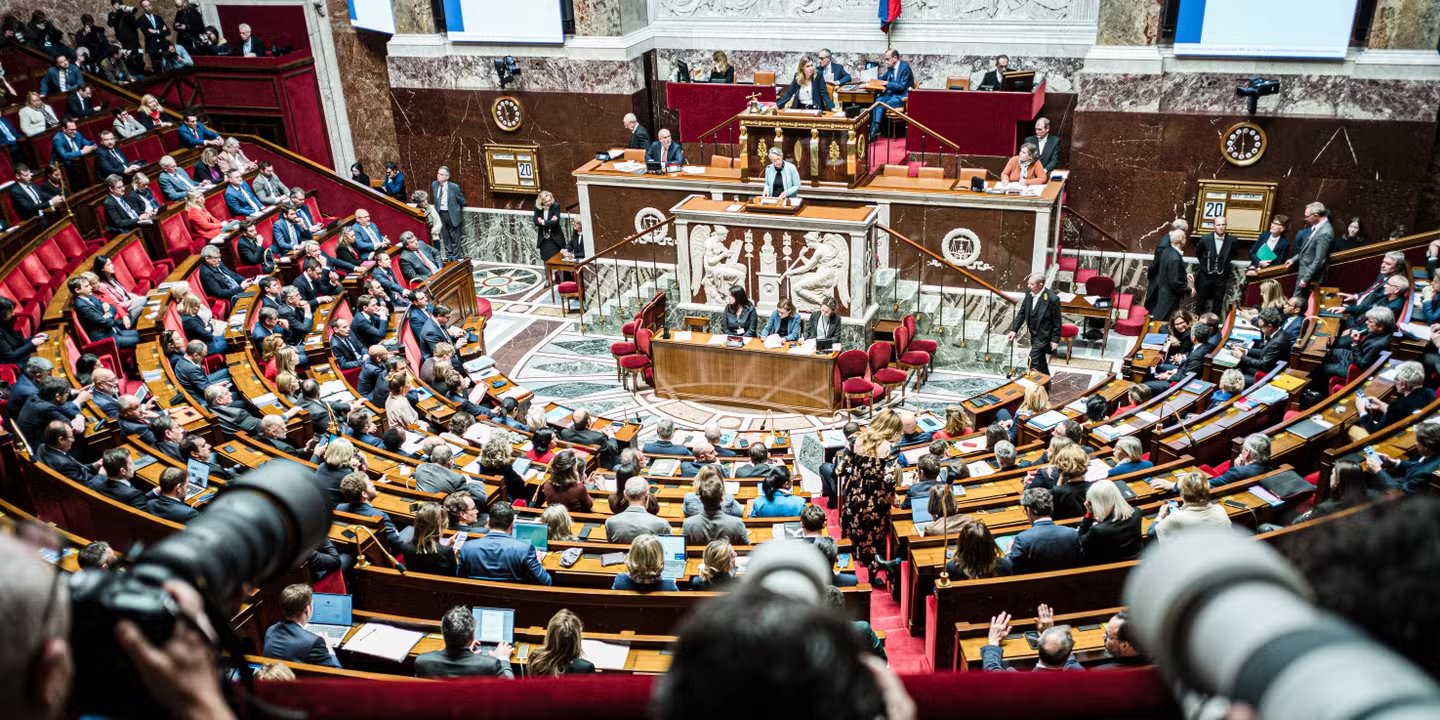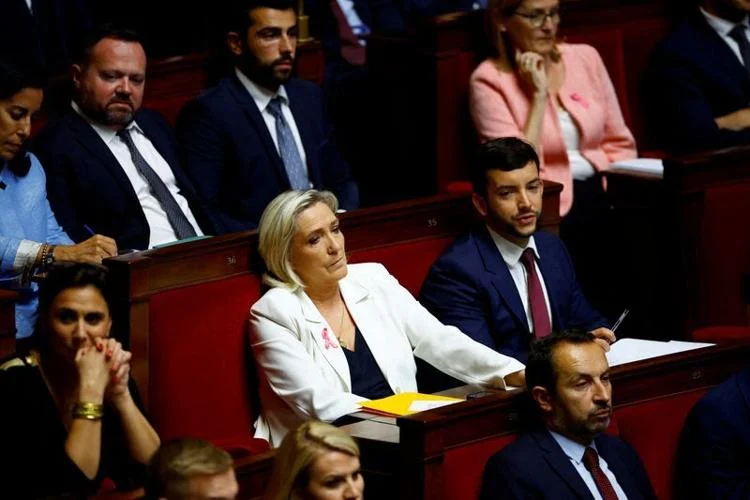France’s government teetered on the brink of collapse Monday as both far-right and left-wing parties filed no-confidence motions against Prime Minister Michel Barnier, sending financial markets tumbling and deepening political uncertainty in Europe’s second-largest economy.

“The French have had enough,” declared National Rally (RN) leader Marine Le Pen, announcing her party’s motion. The move came after Barnier attempted to force a social security bill through parliament without a vote, a decision that also prompted a separate no-confidence motion from the left-wing opposition.
The combined opposition votes appear sufficient to topple Barnier’s fragile coalition, which would mark the first French government ousted by parliament since 1962. The crucial vote is expected Wednesday.
Financial markets reacted swiftly, with French bonds weakening against German benchmarks and the CAC 40 stock index, already down nearly 10% since President Emmanuel Macron called snap elections in June, experiencing further pressure.

The political crisis threatens to create a leadership vacuum in Europe, coinciding with Germany’s election season and weeks before Donald Trump’s anticipated return to the White House. Barnier, who only became prime minister in September, urged lawmakers not to support the no-confidence vote, warning that “The French will not forgive us for putting the interests of individuals before the future of the country.”
At stake is France’s annual budget, which includes €60 billion ($63 billion) in tax increases and spending cuts aimed at reducing the public deficit. If Barnier’s government falls, a caretaker administration might need to implement emergency measures to maintain government operations, as new snap elections cannot be held before July.
“Is she ready to sacrifice all the wins she got?” a source close to Barnier told Reuters, referring to Le Pen and recent concessions made to her party. The RN had previously provided crucial support for the minority government’s survival.


